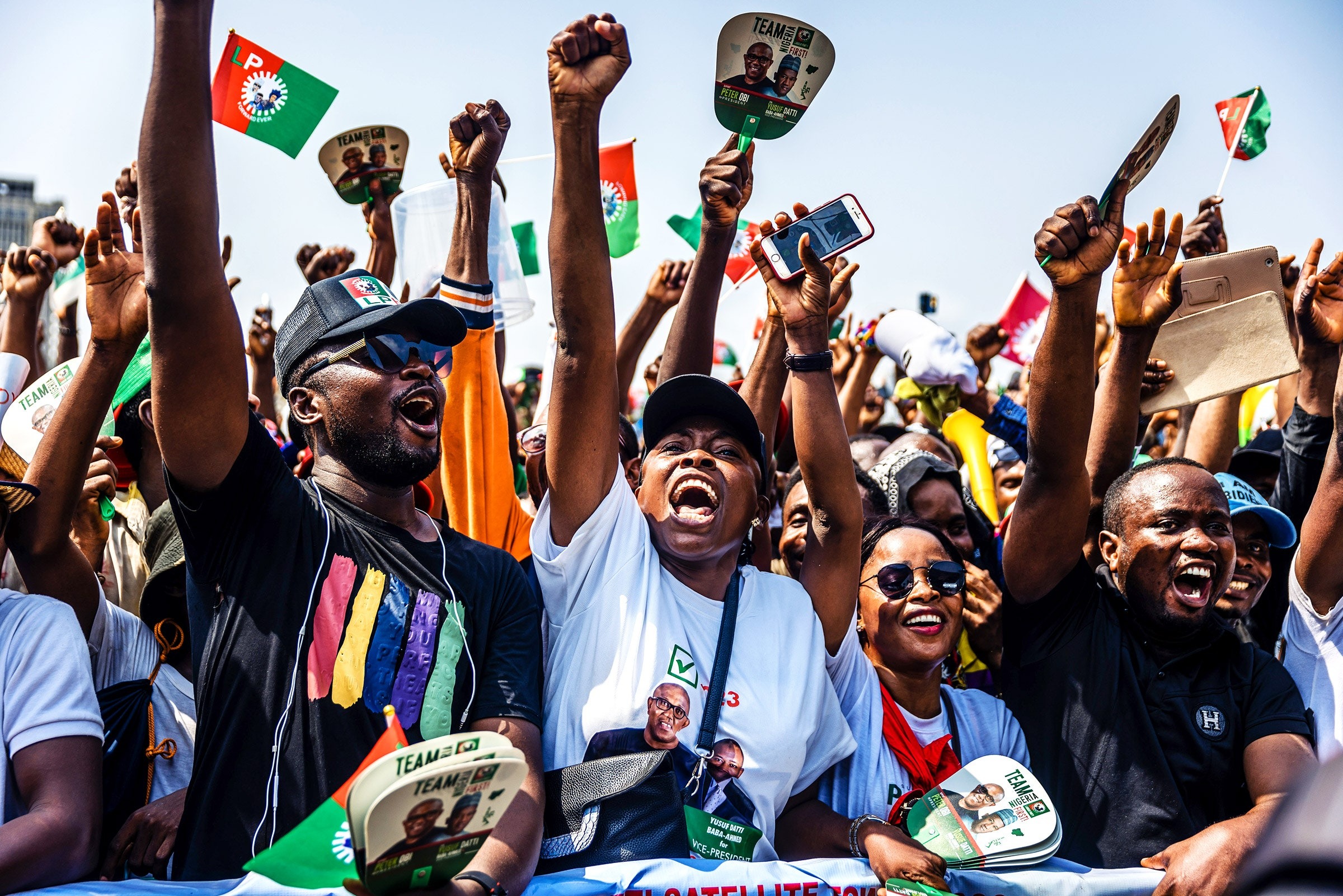The act of voting holds significant meaning in Indonesia, a country that transitioned from a brutal dictatorship to a thriving democracy in just a few decades.
The recent celebration known as “Pesta Demokrasi” or Democracy Party in Jakarta served as a prelude to Election Day, where millions of Indonesians participate in free and fair elections, a concept once inconceivable during the oppressive rule of Suharto.
The festive atmosphere on Election Day is marked by people visiting polling stations adorned with balloons and manned by officials dressed as superheroes. The turnout for elections has consistently been among the world’s highest, reaching a record 80 percent in 2019, showcasing Indonesia’s commitment to the democratic process.

Voters On Election Day (Credits: NPR)
With a minimum voting age of 17, the majority of the 205 million voters in Indonesia are under 40, emphasizing the youth’s substantial influence in shaping the country’s political landscape.
The presidential election features a three-way race, with candidates Anies Baswedan, Prabowo Subianto, and Ganjar Pranowo prominently displayed on billboards across major roads. Debates among the candidates are widely discussed on social media platforms such as Instagram, TikTok, and X.
Indonesians commonly refer to the candidates by their assigned numbers, leading to the ubiquitous question in households and cafes: “Are you voting for 1, 2, or 3?” However, despite the vibrancy of the electoral process, there are limitations.
The relatively recent introduction of democracy in Indonesia has left some voters unfamiliar with choosing candidates based on track records and ideas. Organizers, like Abigail Limuria, aim to address this issue by educating voters about candidates and issues, promoting an informed and thoughtful approach to the democratic process.
The challenge lies in encouraging a transition from familial influences to individual choices, fostering a more robust and independent democratic culture in Indonesia.























